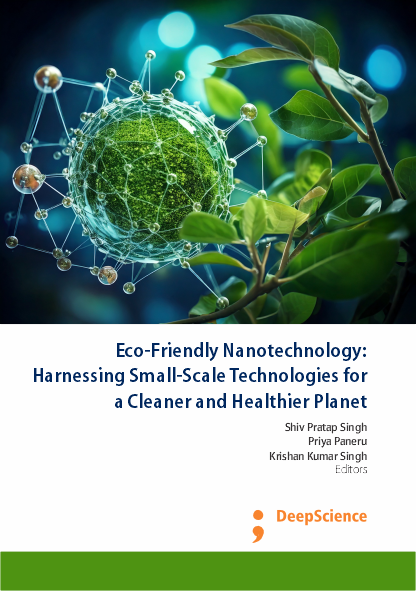Fundamental principles of green nanotechnology in agriculture
Synopsis
Green nanotechnology integrates nanotechnology with sustainable agriculture to enhance productivity while reducing environmental impact. This chapter explores eco-friendly nanomaterial synthesis using biological, plant-mediated, and green chemical processes, minimizing toxic substances. It highlights applications in crop protection, soil enhancement, and water management, emphasizing bio-based nanoformulations in fertilizers, pesticides, and nanosensors for precision agriculture. Nano-enabled slow-release fertilizers improve nutrient uptake, while nano-encapsulated pesticides offer targeted pest control with reduced toxicity. Smart nanosensors enable real-time monitoring of soil and plant health, optimizing resource use. The chapter also addresses potential ecological and health risks, regulatory challenges, and ethical concerns. Future research focuses on biodegradable, scalable nanomaterials and integrating nanotechnology with AI, biotechnology, and smart farming for sustainable agriculture. Responsible innovation and strong regulatory frameworks are essential for maximizing benefits while ensuring ecological safety and food security.
Keywords: Green nanotechnology, Sustainable agriculture, Nanoformulations, Eco-friendly nanomaterials, Regulatory challenges.













